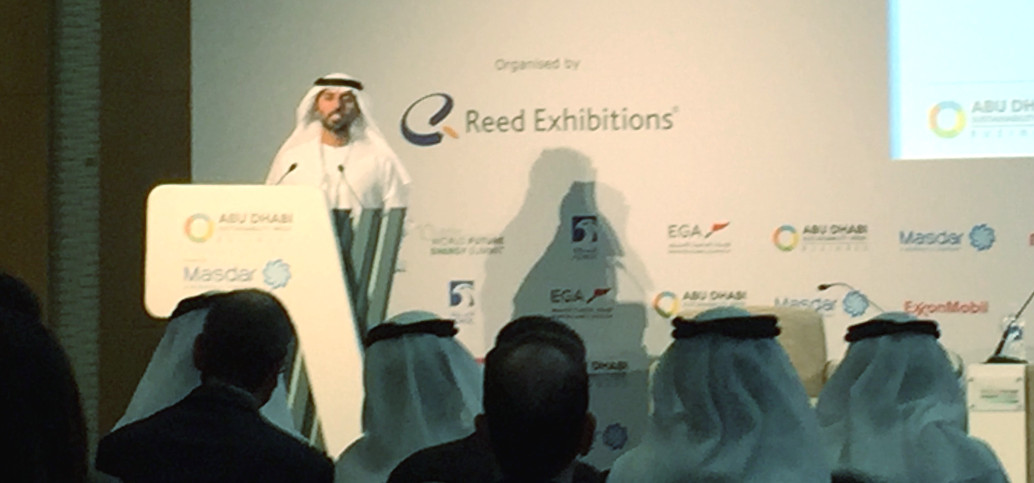Suhail Al Mazroui, the UAE’s energy minister, presented the new Emirati energy strategy this week at the World Future Energy Summit (WFES) in Abu Dhabi.
Speaking today at a WFES panel titled “meeting the UAE’s renewable energy targets”, the minister said his country had decided that 44% of the installed power capacity in 2050 will come from renewable energies. Nuclear energy, green gas and clean coal will contribute a further 6%, 38% and 12% respectively, said the energy minister, who highlighted that fossil-based energy technologies are becoming also cleaner.
The state will be the off-taker of the generated electricity, said Al Mazroui at another WFES presentation earlier this week. However, all future investments, for both renewable and conventional power plants, will need to come through private investors, requiring about US$ 190 billion of investment, he added.
Equally interesting was Al Mazroui’s note that the UAE government understands that fossil fuel subsidies are a barrier to the market’s development, thus the government has started gradually removing the subsidies for diesel and gasoline.
The UAE government has decided to allow the renewable energies to compete in the energy market, but similarly apart from energy system sustainability, the government is also concerned about affordability of the electricity prices, Al Mazroui told the WFES.
Decreasing cost is PV’s greatest strength
Compared to other nations, said the minister, UAE was slow in designing an energy strategy that addresses renewable energy development. This is because we wanted to make sure that the new policy strategy is shaped from the bottom-up, taking into consideration all stakeholders’ viewpoints. He did accept though, that the rapidly decreasing costs of renewable energy technologies, most notably solar PV, were also a trigger for the UAE’s shift towards a new energy strategy.
Popular content
Dubai is the UAE’s most active emirate
Speaking with various stakeholders on the WFES’ grounds as well as attending the UAE-related seminars, pv magazine understand's that Dubai is the most active Emirate concerning progress towards a decentralized energy system.
Saeed Mohammed Al Tayer, Dubai’s Electricity and Water Authority CEO, told the WFES today that Dubai set its own strategy to diversify its energy mix in 2015. Based on this, the emirate will generate 25% of its electricity from renewables.
However, this is only one part of the activity currently taking place in Dubai, said Al Tayer. Dubai has set a smart grid initiative, which includes a smart meter roll out and at least 100 EVs chargers being already installed in the city.
Recently, the Dubai Electricity and Water Authority signed memorandum of understandings (MoUs) with start-up companies to test systems combining solar and storage in households and businesses, tracking their use and performance.
It is very positive that the Dubai institutions are working towards an integrated system approach, although the downside is that such efforts are set to remain only experimental, because the country’s very cheap electricity price does not encourage consumers to consider alternative options. Rooftop PV does not have any chance of being commercialized in the UAE, unless a fundamental re-design of the electricity tariff policy is undertaken.
This content is protected by copyright and may not be reused. If you want to cooperate with us and would like to reuse some of our content, please contact: editors@pv-magazine.com.


1 comment
By submitting this form you agree to pv magazine using your data for the purposes of publishing your comment.
Your personal data will only be disclosed or otherwise transmitted to third parties for the purposes of spam filtering or if this is necessary for technical maintenance of the website. Any other transfer to third parties will not take place unless this is justified on the basis of applicable data protection regulations or if pv magazine is legally obliged to do so.
You may revoke this consent at any time with effect for the future, in which case your personal data will be deleted immediately. Otherwise, your data will be deleted if pv magazine has processed your request or the purpose of data storage is fulfilled.
Further information on data privacy can be found in our Data Protection Policy.